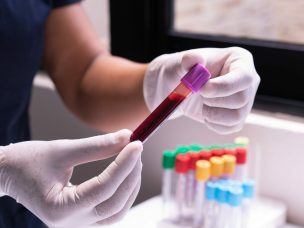Contributions
Drop in LDL Cholesterol Greater With Low-, Moderate-Intensity Statins for Seniors
Initiators of statins aged 75 years or older had higher mean percentage reduction than those younger than 50 years. For older versus younger adults, low- to moderate-intensity statins are associated with a greater reduction in low-density lipoprotein cholesterol (LDL-C), according to a study published online Aug. 1 in the Annals of Internal Medicine. Giulia Corn, Ph.D.,...
Global Impact of Modifiable Risk Factors on Cardiovascular Disease and Mortality
Recent research analyzed the association of modifiable risk factors with cardiovascular disease and death in a global cohort. Modifiable risk factors such as body mass index (BMI), systolic blood pressure (SBP), non-high-density lipoprotein (non-HDL) cholesterol level, smoking, and diabetes are associated with cardiovascular disease (CVD); however, data regarding their impact varies according to the study...
High Low-Density Lipoprotein Cholesterol Levels and Early-Onset Vasomotor Symptoms
Higher serum levels of low-density lipoprotein cholesterol are positively related to the risk of early-onset vasomotor symptoms in premenopausal women. The predominant symptoms evident during the menopausal transition are vasomotor symptoms, including night sweats and hot flashes. Long-lasting and severe vasomotor symptoms tend to be associated with obesity, adverse cholesterol levels, high blood pressure, and...
Interleukin-33 Biomarker Affected Intrathecal Immunoglobulin Synthesis in NMOSD and MOGAD
Interleukin-33 can lead to blood–brain barrier dysfunction, mediating the intrathecal production of immunoglobulins in myelin oligodendrocyte glycoprotein antibody disease and aquaporin-4 neuromyelitis optica spectrum disorder. Interleukin-33 is correlated with central nervous system demyelinating diseases. The autoimmune conditions of the central nervous system (CNS) include myelin oligodendrocyte glycoprotein antibody disease (MOGAD) and neuromyelitis optica spectrum disorder...
The Role of Cholesterol Pathway Biomarkers in Cognitive Impairment in MS
The role of cholesterol pathway biomarkers in multiple sclerosis is not fully understood. This article makes the case that these biomarkers may correlate with cognitive impairment. Cholesterol pathway biomarkers are associated with breakdown of the blood-brain barrier, lesions, and neurodegeneration in patients with multiple sclerosis (MS). Cognitive impairment is common in these patients, and is...
Mitapivat Treatment - Alleviating Anemia in KLF1 Mutation
This new study suggests that mitapivat may have a role in managing various hematological conditions like KLF1 mutation-related anemia, thalassemia, and other hemolytic conditions. Human erythroid Krüppel-like factor 1 (EKLF or KLF1) plays an important role in erythroid development. Most patients with KLF1 mutation suffer from severe hemolytic anemia and require regular blood transfusions. These...
Blood Rheology After Stem Cell Interventions in Sickle Cell Patients
A new study suggests the importance of functional blood tests in identifying the success of sickle cell anemia using stem cell transplantation or autologous gene therapy. For those diagnosed with sickle cell disease (SCD), allogeneic hematopoietic stem cell transplantation (HCT) and ex vivo autologous gene therapies (GT) are among the most promising treatment approaches. However,...
Unmasking the Adverse Effects of Diabetes on RBCs
A new study found that diabetes alters rheologic properties due to red blood cell deformity and increased adhesion, which increases cardiovascular risk in the condition. Diabetes is one of the most significant health disorders globally, and there has been a fourfold increase in the number of individuals affected by the condition since 1980. Among the...
Study Suggests New Primaquine Regime in G6PD Deficient Patients with P. Vivax
Primaquine is contraindicated in patients with P. vivax infections due to a risk of hemolysis. However, a novel humanized murine study identified specific conformational changes in glucose 6-phosphate dehydrogenase deficiency that confirm that activity of the enzyme decreases with RBC age and support dose escalation regimens, as currently suggested by clinical studies. Approximately 500 million...








